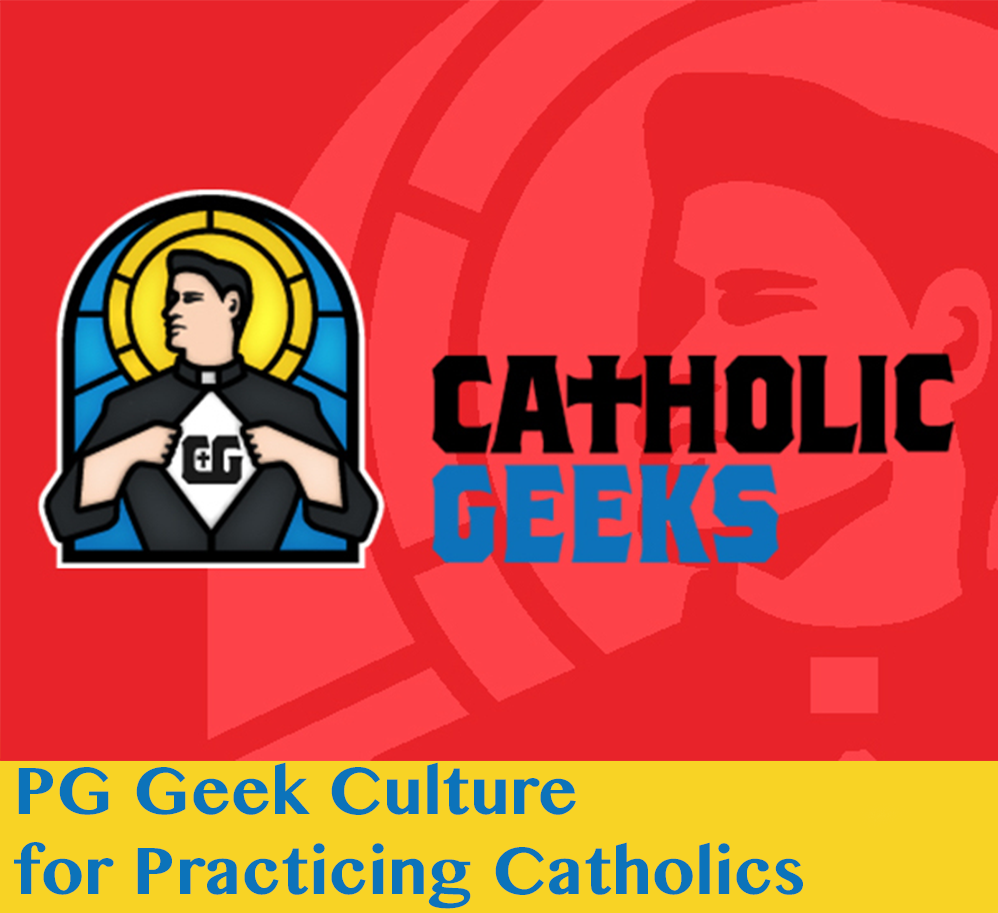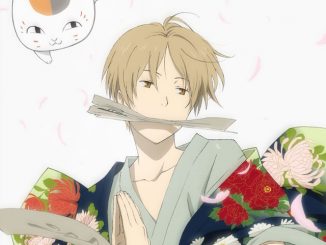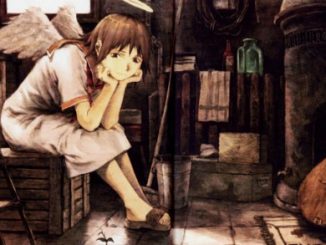
I watched Death Parade on the recommendation of a few members in our Catholic Anime Geeks group. It had gotten high marks and I had been told that they didn’t want to give anything away but that I should just watch it. Realizing the show (so far) was only one season and a short 12 episodes, I thought “What the hey!” and decided to use one of my quieter Friday evenings to knock this watch out.
The cheery Blood, Blockade, Battlefront-esque opening could not have prepared me less for what I was about to see. I nearly turned it off after the first episode. In fact, I did pause it, get up, have a soft cry in my bathroom, wondered about my life choices, sat back down, and against my better judgment, with a shaky index finger…pressed play.
Now, it’s not because Death Parade is of poor quality. As a matter of fact it is a very well put together anime, good acting, and all that stuff that would normally be something I would find pleasing and wax rhapsodic about. But I can’t say that about Death Parade. Because it’s content made me profoundly uncomfortable.
When I say uncomfortable I mean that in two ways, the first is the good kind of uncomfortable. The kind of uncomfortable that a good, dark morality tale can ignite in a person’s gut. It’s the kind of uncomfortable that makes you think deeply about things that you don’t often (but probably should) think of. Things we don’t like to think about. Like the death of loved ones, the afterlife, whether you’ve lived well, what happens if you haven’t, and the stark reminder that despite all the frenetic seemingly important activity of your life, there is an eventual end to it all. And the end is absolute. Death Parade is a near constant reminder of the Catholic practice of memento mori. And I can guarantee that you won’t make it through an episode without being forced to ponder those final things that all human beings must face: Death, Judgement, Heaven, and Hell. Topics that make all wise Catholics a little uneasy as we work out our salvation in fear and trembling. In that sense, it is a show that will challenge you to do some deep inner reflection and will most definitely scare you with the kind of fear that only death and judgement can wield. If that were all that the show did I would say I could recommend it without reservations. But unfortunately it’s not.
Because the second kind of uncomfortable I felt had to do with the conclusions that the show draws about death, and most importantly the afterlife. The concept centers around a specialized department set up in the afterlife to judge souls that die in a very specific way. First, it has to be two souls, and second the souls usually have some kind of connection, not necessarily in life but perhaps through spiritual malady, or strength that connects their past lives through similarity more than circumstance. Judgement is carried out by placing the souls under considerable strain, through a variety of games that will slowly reveal certain key things about their former lives to them as they play. The games are presided over by stone faced Arbiter, who then determines the fates of those souls sent to his little chamber of woe.
Here’s where it gets dicey for me. The end result is either reincarnation, or the void where you fall endlessly in a black pit for eternity. In both cases there really isn’t a reward for living well, since being reincarnated basically gives you another shot to live but doesn’t guarantee that you’ll live well in your next life…meaning it feels very much like they only are delaying the inevitable fall into the void after however many deaths and judgments they experience. And then there is my issue with the Arbiters themselves, who are capricious, not guided by an objective standard of morality, and…even more unbelievably, can make mistakes. Accidentally damning souls that are undeserving of being damned. The punishment for such a massive error being a “Tsk tsk, shame on you. Try harder next time,” rather than reversing the erroneous decision for the poor unlucky sap who couldn’t convince the Arbiter they had lived well. As you might expect, there is violence, viscera, and highly upsetting emotional trauma repeatedly poked at throughout the show. All of that makes the overall takeaway from Death Parade incredibly bleak.
The end result for me, watching the show was that life was just a long never ending game of birth, suffering, possibly living well, death, judgement, and then having almost none of it matter. It’s the kind of show that doesn’t resolve the darkness it imparts to it’s viewers very well. Unlike another dark show like Death Note, Death Parade’s darkness lingers, with a clingy nihilistic ennui that I feel doesn’t fit well into any Catholic’s life. It’s for that reason that despite it’s good elements, I would say to pass this one up.
If you really (and I mean REALLY) want to watch this show, it’s currently streaming on hulu.com.
Have a different opinion? Let me know in the comments!



